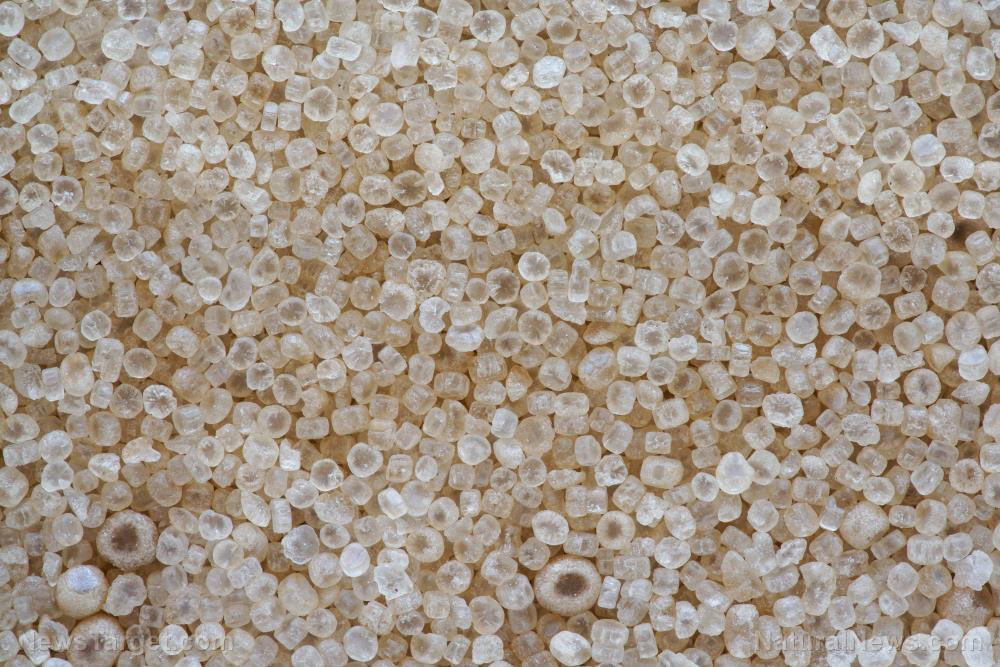
According to the United Nations' worst-case scenario calculations, global food prices will rise by an additional 8.5 percent by 2027, with rising fertilizer prices significantly contributing significantly to those rising costs. According to the American Farm Bureau, fertilizer prices have spiked by as much as 300 percent since Sept. 2020. (Related: Global food and fertilizer supply crisis gives Russia significant leverage.)
"Last year [fertilizer] was around $270 per ton and now it's over $1,400 per ton," said Meagan Kaiser of Kaiser Family Farms and farmer-director of the United Soybean Board. "It's scary. It turns my stomach a little bit to think about the amount of risk that our family farm is taking right now."
According to the International Fertilizer Association, the world would only be able to produce enough food to feed about half of the global population with very little to no fertilizer.
Without any recourse left, American farmers have no choice but to adjust to their new situation. A survey conducted by the Department of Agriculture (USDA) in the spring found that many farmers intend to plant more soybeans.
The USDA data shows that a record 91 million acres of soybean will be grown this spring, likely because legumes like soybean do not require as much fertilizer as other staple crops like corn and wheat.
Crop yields to suffer further due to fertilizer emissions reduction targets
In places like Canada, crop yields are expected to get even worse than current estimates because the government of Prime Minister Justin Trudeau is forcing farmers to reduce their use of fertilizer more than they already have to lower greenhouse gas emissions.
Canadian business and agriculture groups have pushed back on the federal mandate, arguing it will reduce yields at a time when food security is a major concern.
Agriculture and Agri-Food Canada claims reducing nitrous oxide emissions associated with synthetic nitrogen fertilizer, which is being specifically targeted by the emissions mandate, is necessary for Canada to achieve net-zero emissions by 2050. By 2030, the government wants to reduce fertilizer emissions by as much as 30 percent below 2020 levels.
The Canadian Federation of Independent Business (CFIB) said that the federal government should not make reducing fertilizer emissions mandatory.
"While the government of Canada's objective is to set a national target to reduce emissions, the primary method to achieve this is not to establish a mandatory reduction in fertilizer use," said CFIB policy analyst Taylor Brown.
He added that nitrogen fertilizer is an "essential element" for Canadian farmers to maintain high crop yields.
In a CFIB-commissioned survey, the organization found that 72 percent of the farmers they spoke to said that crop yields and overall food production will plummet if they are forced to reduce their use of nitrogen fertilizer. Brown noted that this will make farmers less competitive with other food producers.
"Coupled with rising costs and labor shortages, they are wondering how they're going to continue saving the world," said Brown.
Other industry groups have expressed similar concerns. Fertilizer Canada warned that Canada's farm income could decrease by CA$ 48 billion ($37.21 billion).
Jake Leguee, vice chairman of the Saskatchewan Wheat Development Commission, said nitrogen fertilizer is the most important provider of nutrients for Canadian farmers. "Without using fertilizer, our crop yields will obviously suffer."
The only way an emissions reduction mandate would even come close to working in Canada, Leguee said, is for the federal government to know what emissions are released by every single farm and field in the country. "We are nowhere near having that level of data," said Leguee, adding that it will take many years and a lot of money to get to that level of understanding.
Learn more about the global fertilizer situation at FertilizerWatch.com.
Watch this episode of the "Health Ranger Report" as Mike Adams, the Health Ranger, discusses how American domestic food production is collapsing as fertilizer runs out.
This video is from the Health Ranger Report channel on Brighteon.com.
More related stories:
Rice crisis incoming: Soaring fertilizer prices threaten rice production in Asia.
Fertilizer price hikes prompt soaring food prices and global shortages.
Op-ed suggests removing tariffs on fertilizer imports to alleviate high fertilizer prices.
Sources include:
Please contact us for more information.


















